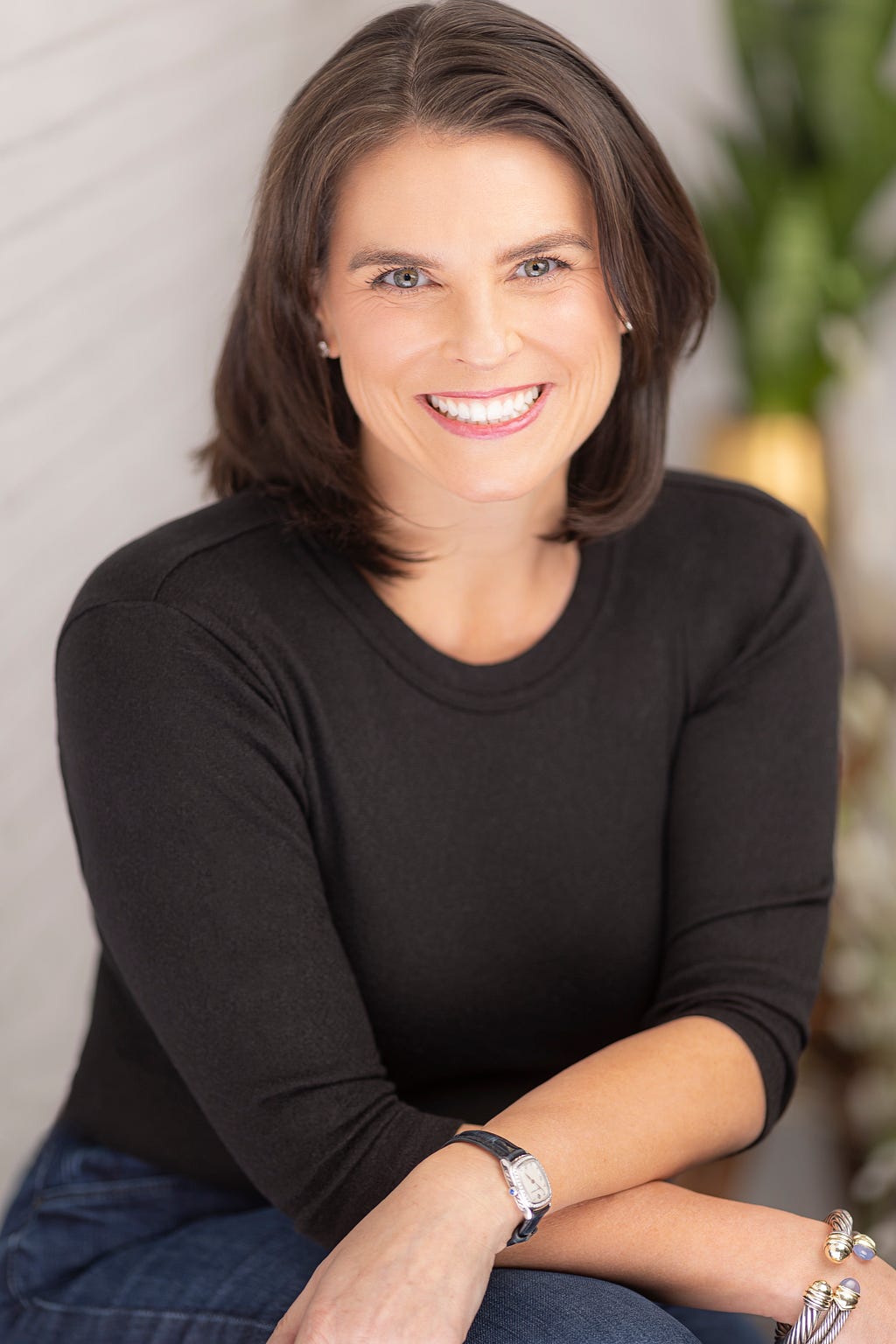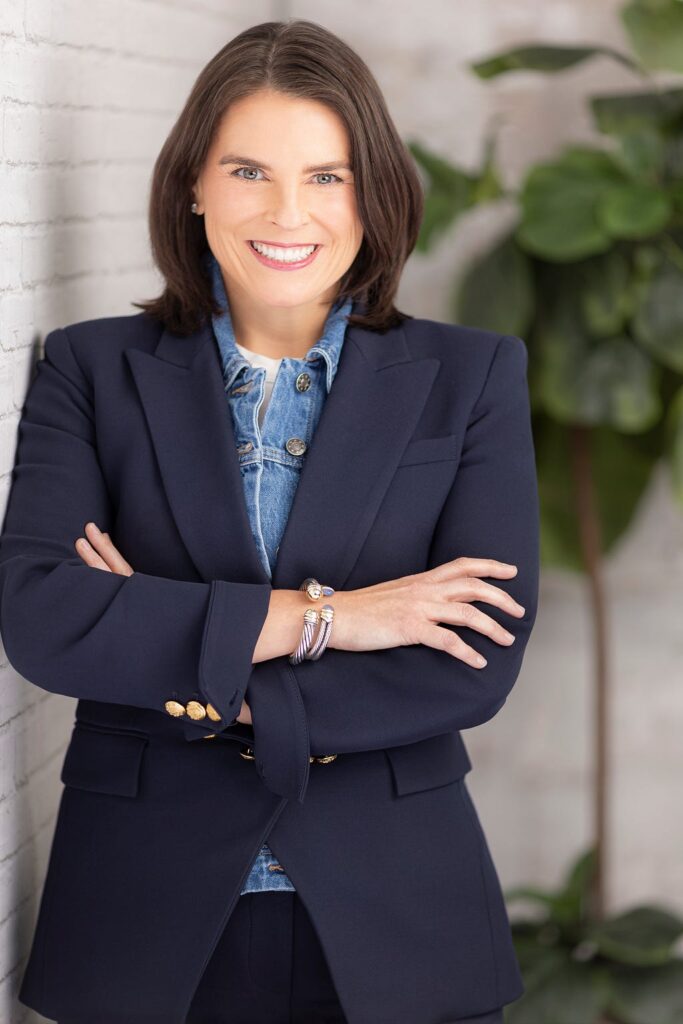An Interview With Vanessa Ogle
Educate oneself on history and current experiences of those from different backgrounds — do not assume your experience is everyone’s experience.
In a world where diversity is often acknowledged but not always celebrated, we are taking a step forward to highlight the importance of inclusivity in building strong, vibrant communities. This series aims to explore the various facets of diversity — be it racial, cultural, gender-based, or within the differently-abled community — and understand how embracing these differences strengthens our social fabric. As part of this series, we had the pleasure of interviewing Bethany Frick CEO, District Cannabis.
Bethany Frick is the CEO of District Cannabis, a thriving cultivator providing premium flower to the D.C. and Maryland markets at affordable prices. By end of 2024, District will be vertically integrated in both markets. In addition to creating a great place to work for all team members, Bethany’s key areas of focus are on business growth, sales, and marketing. Most recently District Cannabis opened their first retail store in Union Market, Washington D.C. and they launched two new pre-roll lines.
Prior to District Cannabis, Bethany worked in management consulting at Accenture and Slalom, and in the beverage alcohol industry at Diageo and Total Wine & More. Her experience in the regulated alcohol industry and problem solving as a management consultant have been critical in addressing the needs of the business.
Thank you so much for joining us in this interview series. Before we dive into our discussion about celebrating diversity, our readers would love to “get to know you” a bit better. Can you share with us the backstory about what brought you to your specific career path?
I have had the good fortune of working for incredible companies with talented people both of which shaped me and my rather unique career path. My path includes fortune 500 global enterprises and small fast-growing companies with a commercial focus on the end consumer or guest.
My first role out of college was with Accenture Consulting. I benefited from operating with high performing colleagues, gaining exposure to senior leaders at national retailers, and solving business problems across different functional areas. I also learned to think of my time and how I use it to add value — when you are billing your time, you need to make sure that time is bill-worthy. I carried those skills into the alcohol industry at a small fast-growing company, Total Wine & More, where I spent nine years. This is where I grew as a leader and learned to take calculated risks. It is also where I learned how to operate in a regulated industry with federal and independent state level regulations. I stayed in the alcohol industry and joined Diageo, a global leader in beverage alcohol, where I gained the skills of brand development, launching innovation at scale, and managing a multimillion-dollar budget. I jumped back into consulting and then into a failed startup. Having a failure along the path was a great learning experience, and further prepared me for my current role on what not to do.
Can you share an interesting or hopeful story where spending time with someone who did not look like you or who was different from you taught you something that has been useful to you?
I have countless examples of people different than me making me a better person, leader, and worker. I would say one of my favorite memories was working with a client when I was at Slalom consulting. He was a VP at the largest hospitality company in the world and he shared with me his career path which included grassroots marketing efforts for political campaigns. He taught me the importance of using all your experiences in your work and appreciating others’ diverse experiences to get the best results.
You are a successful leader. Which three character traits do you think were most instrumental to your success? Can you please share a story or example for each?
- Resilience — In 2020 when COVID impacted the US economy, the hospitality industry over indexed in plummeting revenue. That was the arc of the business I looked over. It was devastating watching over 70% of my clients be furloughed. I had to pivot quickly to create value for my own company outside my main industry line and, in a leadership role, had to show hope and optimism.
- Tenacity — I have found that having clear goals and motivating my team around those goals with a relentless focus on excellence has helped me throughout my career.
- Empathy — You never know what someone is going through. Ask questions vs jumping to conclusions.
Ok, thank you for that. Let’s now jump to the primary focus of our interview. Can you share a personal story that highlights the impact of diversity and inclusivity in your life or career?
I have been a part of several organizations that had inclusivity and diversity as a tenant of their core values. It often feels forced or erratic — as if people do not know what to do, but they know they need to do something. Once I joined the world of Cannabis, I saw an entire industry focused on righting the wrongs of the past — which innately leads to diversity and inclusivity. I have seen this focus both from the private sector and the public sector of cannabis. It has been an incredible experience and I am excited for all to come in this space and how we might influence other industries with programs and support to equalize the playing field.
How do you approach and manage the challenges that arise when working towards creating more inclusive communities?
There are always going to be challenges. The most important thing I have learned is being eager to learn and listen. Ask questions. Allow yourself to be corrected. Learn from your mistakes — and don’t make them again. Want to do what’s right, and do what’s right.
What innovative strategies or initiatives have you implemented or observed that effectively promote the importance of diversity and inclusivity?
The Maryland Cannabis Administration has focused on social equity as it stood up its cannabis economy. Through the issuance of licenses, financial support, and training and mentoring, they have sought to right the wrongs of the past in cannabis through focusing on zip codes where incarceration was heaviest. Also, in July Governor Wes Moore signed historic legislation that pardoned 175,000 Maryland convictions related to the possession of cannabis.
In your opinion, what are the key elements that make a community truly inclusive, and how can these be fostered on a larger scale?
Inclusivity means seeing the value different people bring to the table and fostering that collaboration. It means understanding when not to talk, and when to listen. It means getting to know your colleague or your neighbor. It means seeking out experiences with new cultures, taking the time to understand, and celebrating differences.

Based on your experience and research, can you please share “5 Ways We Can Build Inclusive Communities”?
1 . Seek out differences: in how we hire, retain and grow talent, and working styles.
2 . Educate oneself on history and current experiences of those from different backgrounds — do not assume your experience is everyone’s experience.
3 . Evaluate the dynamics of a situation and appreciate life experiences before taking corrective action with an employee.
4 . Ensure there is a diverse group of people leading inclusion and diversity initiatives.
5 . Set key measurements (employee surveys, retention, hiring numbers, etc) to achieve inclusivity and diversity milestones and track the numbers. Make sure leadership prioritizes hitting the metrics.
How do you measure the impact and success of diversity and inclusion efforts, and what changes have you seen as a result of these initiatives?
In a business setting, turnover and hire rates of diverse talent, along with employee surveys are pivotal in transitioning from “thinking something is important” to making it important. You cannot just look at one of those metrics. At my previous company, we measured ourselves against those metrics — sometimes those metrics were not great, but we still tracked them and made adjustments in our approach to get to the numbers we wanted. Some key activities we did to change our numbers: Sought out ways to mentor and grow diverse talent within our company including the promotion process, Changed our definition of what background one needed to be hired, and Looked for talent in new places with partnerships with local universities and internship programs.
You are a person of great influence. If you could start a movement that would bring the most amount of good to the most amount of people, what would that be? You never know what your idea can trigger. 🙂
I would love to start a movement to change the algorithm for social media feeds to include an element of “not picked for me” — highlighting influencers with different perspectives from what one’s typical feed would contain. Our information intake is too tailored right now — people select specific news channels to align with their political values, they follow certain influencers or journalists based on the content that matches their interests and values, etc. Our current state is making us less educated about a broader range of topics, ideas, and values.
How can our readers further follow you online?
On LinkedIn — Bethany Frick
Thank you for the time you spent sharing these fantastic insights. We wish you continued success in your great work!
About The Interviewer: Vanessa Ogle is a mom, entrepreneur, inventor, writer, and singer/songwriter. Vanessa’s talent in building world-class leadership teams focused on diversity, a culture of service, and innovation through inclusion allowed her to be one of the most acclaimed Latina CEO’s in the last 30 years. She collaborated with the world’s leading technology and content companies such as Netflix, Amazon, HBO, and Broadcom to bring innovative solutions to travelers and hotels around the world. Vanessa is the lead inventor on 120+ U.S. Patents. Accolades include: FAST 100, Entrepreneur 360 Best Companies, Inc. 500 and then another six times on the Inc. 5000. Vanessa was personally honored with Inc. 100 Female Founder’s Award, Ernst and Young’s Entrepreneur of the Year Award, and Enterprising Women of the Year among others. Vanessa now spends her time sharing stories to inspire and give hope through articles, speaking engagements and music. In her spare time she writes and plays music in the Amazon best selling new band HigherHill, teaches surfing clinics, trains dogs, and cheers on her children.
Please connect with Vanessa here on linkedin and subscribe to her newsletter Unplugged as well as follow her on Substack, Instagram, Facebook, and X and of course on her website VanessaOgle.
Celebrating Diversity: Bethany Frick Of District Cannabis On How To Build Inclusive Communities was originally published in Authority Magazine on Medium, where people are continuing the conversation by highlighting and responding to this story.
